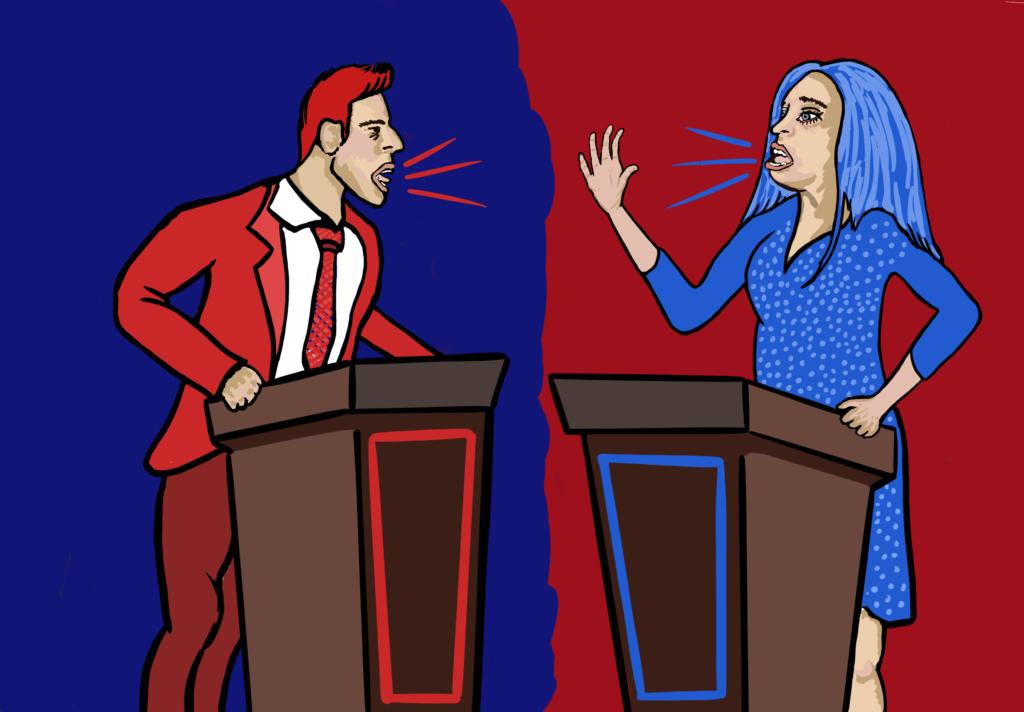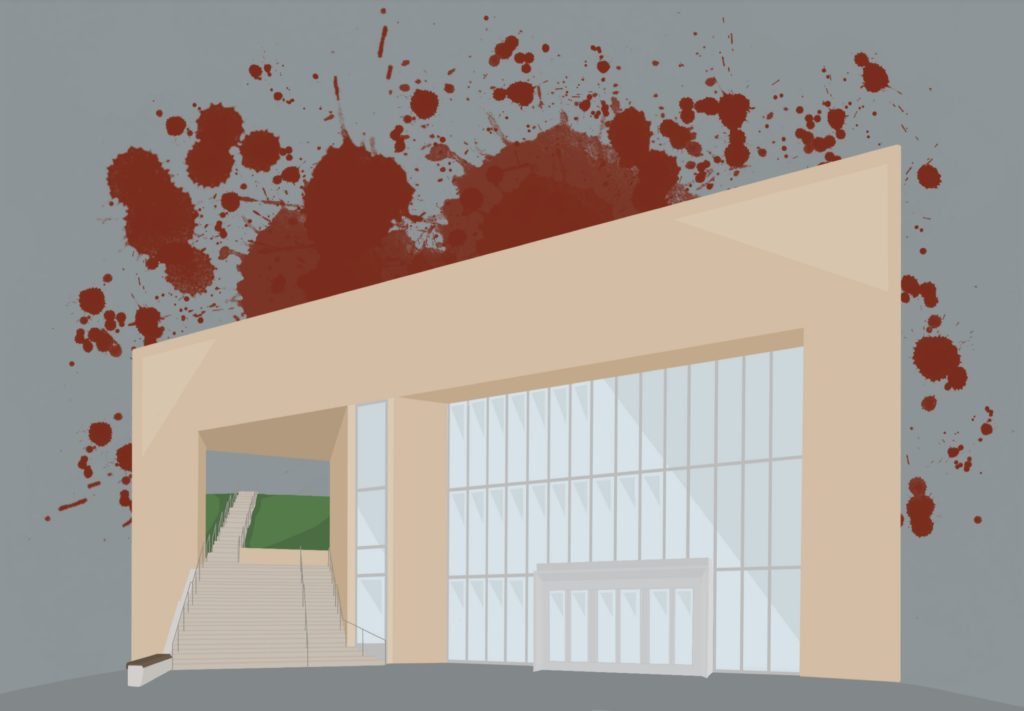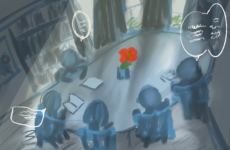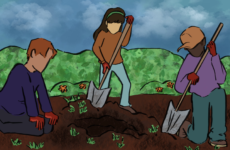By Francesca Howard ’26
As Choate’s Community Conversation on political identity drew near, it quickly became the most anticipated event on campus. An arguably more contentious topic than ever before, it was predicted to spark sudden controversy.
From dining hall small talk to English class discussions, speculations about the heat it would provoke and bold opinions it would uncover were rampant. Everyone, myself included, was eager to see how the conversation would unfold.
When the day arrived, the conversation didn’t disappoint; it was every bit as interesting as we had hoped it would be. Choate’s Community Conversations are all-school discussions designed to promote awareness within our community. This particular one undertook the arduous task of breaking down barriers around one of the most polarizing topics: politics. Subtopics arose on the day of the conversation, such as how people develop their political identities, how they have changed over time, and most controversially, how Choate has shaped them.
Students from various sides of the political spectrum spoke up, but there was one thing almost all of them agreed upon: Choate is a monolithic community; not necessarily in political identity, but in the beliefs that students feel safe expressing. In other words, Choate community members are uniform in political expression in order to be accepted by others.
Students, particularly those with conservative political views, argued that Choate discourages independent thought by pushing an agenda that favors progressive beliefs. They mentioned how grades, especially in their humanities classes, are influenced by their teachers’ personal opinions; therefore, they feel pressure to conform to their teachers beliefs in order to receive a good grade.
Choate’s Community Conversation was juicy — yes — but needed to address the root cause underlying many of our community’s problems. Unfortunately, it did not. Most of the phenomena that Choate students flagged in the political identity Community Conversation are real, and I think it is up to the students more so than the School to solve these issues.
As someone who doesn’t firmly identify with any particular political party, I resonate with the challenges of holding opinions that don’t always align with the majority. Growing up in a conservative-leaning household while attending a progressive school in New York City, I’ve always had two opposing spheres of influence in my life, neither of which I fully identified with. There was always pressure to align myself with one of the two parties even though deep down, I couldn’t.
While I haven’t necessarily found a space I fully associate with, my educational background has taught me that unanimous agreement is rare, which is a good thing. Disagreement should be a catalyst for discussion, not division. Our education system is contingent upon learning, and learning is contingent upon difference.
Many Republican students think that they have to be armed with the most flowery vocabulary and must be the leaders of the discussion to even participate in the debate in the first place. More students attend the Young Democrats club than the Young Republicans club because Young Democrats can blend into the crowd. Self-proclaiming Republican students, on the other hand, must defend their intellect and beliefs much more often because they are the minority at Choate.
Be that as it may, my problem with political discussion in classes, clubs, and at Choate in general is that many of the arguments are shaped by misinformation. This might stem from Gen Z’s preference for sourcing news from social media, which isn’t the most reliable. I often see my peers repost on their story and call it activism. Activism isn’t activism if it is purely performative. Activism isn’t activism if you haven’t done actual research outside of Instagram and TikTok.
I think Choate needs to offer more political education that teaches beliefs from multiple parties so that students can develop their own political identity rather than having it be decided for them by the School. Choate could offer workshops in political literacy or in current events. Additionally, students need to make Choate a more welcoming place for conservative views or any other sort of view that doesn’t align with the majority.





